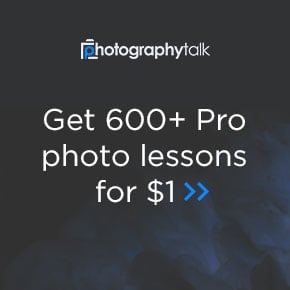- Forum
- General Discussion | Introductions | Off Topic Forum
- Photography General Discussion
- Pro's and Con's of prime lenses
Pro's and Con's of prime lenses
-
 Topic Author
Topic Author
- Crammer
- Photography Hooked
-
- Nikon D810 & D90
- Followers: 139
- Posts: 944
-
Points:
7875
-

- Darrell
- Apprentice
-
- Nikon D7000 & D70
- Followers: 27
- Posts: 2059
-
Points:
0
-
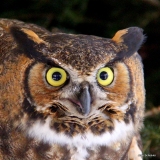
- Baydream
- Moderator
-
- Canoni/60D/70D/5DmkIII
- Followers: 388
- Posts: 11185
-
Points:
7280
Post #216851
Shoot, learn and share. It will make you a better photographer.
fineartamerica.com/profiles/john-g-schickler.html?tab=artwork
-

- Darrell
- Apprentice
-
- Nikon D7000 & D70
- Followers: 27
- Posts: 2059
-
Points:
0
-

- sandozer
- Has the Hang of it
-
- Nikon D300
- Followers: 7
- Posts: 61
-
Points:
0
Post #216856
Post #216859
For the price, primes produce better results. I think once you get up to the "L" zooms, it's tough to argue that primes produce better images. Of course the L zooms are monstrously large compared to a prime. But not compared to 3 primes approximating the same range.
So really, in my opinion, the chief pro of primes is the price/performance ratio.
The chief con of primes is that changing lenses in the field is a real pain.
-Matt
-
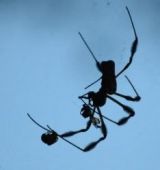
- Dori
- Moderator
-
- Nikon D5000
- Followers: 167
- Posts: 7371
-
Points:
12
-
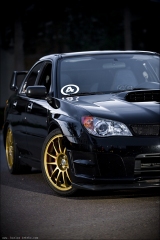
- john_m
- Master of the Lens
-
- Nikon D200
- Followers: 55
- Posts: 1563
-
Points:
0
Post #216881
Nikon D200
Nikon 50mm f1.8D, Tokina 28-80 f2.8, Nikon 75-300, Sigma 18-200, Nikon SB-600, Nikon SB-25, Promaster triggers
-
 Topic Author
Topic Author
- Crammer
- Photography Hooked
-
- Nikon D810 & D90
- Followers: 139
- Posts: 944
-
Points:
7875
-

- Rob pix4u2
- Photo Guru
- Nikon N90s & FE film & D90 and D90 digital bodies
- Followers: 196
- Posts: 4204
-
Points:
30
Post #216887
Remember to engage brain before putting mouth in gear
Rob Huelsman Sr.
My Facebook www.facebook.com/ImaginACTIONPhotography
-
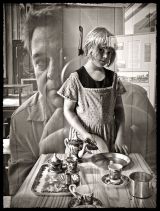
- Henry Peach
- Apprentice
-
- I currently use a 5DII or Sony Nex-3 most of the time.
- Followers: 50
- Posts: 2925
-
Points:
16
Post #217037
Con of primes: fixed focal length
I mainly choose primes when I need a bigger max aperture or I want to carry a smaller rig.
-

- Stealthy Ninja
- Moderator
-
- Fuji X stuff and a 1DsIII for some reason
- Followers: 982
- Posts: 16300
-
Points:
6837
Post #217092
Lens makers make cheap zoom and expensive primes (and visa-versa) I think it all depends on what you want. The Canon 28-300 for example is a very expensive zoom, as is the 70-200 2.8 (from Canon and Nikon). But then again Nikon make a fairly cheap (and better than the Canon) 28-300 zoom.
Go try and afford a Canon 1200mm prime and come back to me and say primes are cheap.
Same goes for the Nikon 200-400 (and the coming soon Canon version).
IMHO the main benefit of primes is speed and with that DOF control.
They're also pretty sharp most of the time.
Post #217111
I like a short 135mm telephoto, sometimes use a 200 or a 50, and got a new 90mm that I'm finding I like and use quite a bit.
Sharon
-

- Prago
- Master of the Lens
-
- Nikon D300
- Followers: 232
- Posts: 1667
-
Points:
13360
Post #217159
john_m wrote: As said, primes offer some amazing IQ but is a pain to have to buy several lenses to cover the range you need. I used to love my 50 f1.8D, but ever since I picked up my 28-80 2.8 I havent touched my prime.
That 28-80mm focused to 50mm can't be the same as the 50mm prime lens?
SWM into chainsaws and hockey masks seeks like-minded SWF. No weirdos, please
Post #217167
Prago wrote:
john_m wrote: As said, primes offer some amazing IQ but is a pain to have to buy several lenses to cover the range you need. I used to love my 50 f1.8D, but ever since I picked up my 28-80 2.8 I havent touched my prime.
That 28-80mm focused to 50mm can't be the same as the 50mm prime lens?
Checkout photozone.de's tests on the nikon 50 f/1.8 D and the nikon 24-70 f/2.8G ED .
The MTF tests on the zoom were done at 40mm, not 50, so it's not quite the same. But it looks to me like the zoom might be a little more consistent across the frame than the prime. According to the numbers, both will be "very good" across the whole frame past about f/4.
So yeah, if you buy the pro-level zoom you get increased flexibility at the cost of extra weight, extra money, and a smaller max aperture. But you don't really sacrifice image quality at equivalent apertures.
-Matt
- Forum
- General Discussion | Introductions | Off Topic Forum
- Photography General Discussion
- Pro's and Con's of prime lenses
Latest Reviews
The Olympus Pen E-P7 is an affordable micro four thirds mirrorless camera with 4K video capabilities, a 20.3MP sensor, and 121 focus points, making it a solid entry-level camera for beginners.
The Panasonic G9 II is a 25.2-megapixel micro four thirds camera with numerous features that make it punch out of its weight class, like 779 AF points, 5.8K video, and weather sealing.
The Fujifilm XT5 is a 40MP mirrorless camera capable of 6.2K video at 30p. With those specs, it’s an ideal choice for photographers needing a camera to pull double duty for imaging and video.
The Canon EOS R100 is an entry-level mirrorless camera introduced in 2023. But just because it’s an entry-level camera doesn’t mean it’s a bare-bones camera. Find out why in this review!
Forum Top Posters
-
1Scotty 8 posts
-
2Ruby Grace 4 posts
-
3TCav 4 posts
-
4Roger Lang 3 posts
-
5Nefarious 3 posts
-
6Jim Photo 3 posts
-
7CharleyL 3 posts
-
8ShutterPal 3 posts
-
9Pat White 3 posts
-
10Razky 3 posts
Latest Articles
Upgrade your kit in 2024 with the best intermediate camera on the market! The question is, what camera fits the bill? We’ve got three top options for you to choose from in this buyer’s guide.
The best photography jobs right now are a mix of tried-and-true gigs like wedding photography and new jobs highlighting AI’s capabilities, travel, and videography.
The Olympus Pen E-P7 is an affordable micro four thirds mirrorless camera with 4K video capabilities, a 20.3MP sensor, and 121 focus points, making it a solid entry-level camera for beginners.
Starting a photography business is one thing; sustaining your business over a long period of time is another. Use the tips in this professional photography guide to build something with longevity!
The Panasonic G9 II is a 25.2-megapixel micro four thirds camera with numerous features that make it punch out of its weight class, like 779 AF points, 5.8K video, and weather sealing.
Cinematic photography is an interesting genre that combines photographic and videographic skills along with effective storytelling techniques. The result? Highly impactful images!
Newborn photography requires skill, the right gear, and a lot of patience. This beginner’s guide discusses critical topics that will help you be more prepared for before, during, and after the shoot.
To fill the frame means to expand the footprint of the subject in your shot. Get in close, zoom in, crop the image, or use other techniques to bring the subject to the forefront.














